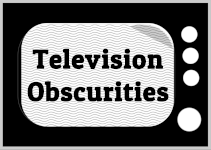Here are some excerpts from an incredible editorial written by Worthington Minor. It was published in the March 1961 issue of Television Magazine. In it he discusses censorship in television, using an episode of WNTA-TV’s Play of the Week, produced by National Telefilm Associates, as an example of what television can deliver when not constrained by commercial interests. It is a wonderful, insightful look at television in the late 1950s/early 1960s and is just as relevant today as it was when it was first published.
In my twenty years in television, the most imaginative managerial idea I have encountered is Ely Landau’s concept for producing and financing Play Of The Week. It is ironic that a single local station in New York should have been the one to do what no network has dared to try—to release its creative personnel from the strait jacket of commercial interference. I have worked now for nearly a year with Play Of The Week. I have never to date received a single call from an advertiser or an agency executive. I don’t even know who they are. No lunches, no conferences, no arguments, no refusals. When I secure a property like “The Iceman Cometh,” I ask Ely Landau if he wants to put it on the air. When he says yes, that’s it.
[…]
It is faintly amusing now to look back on the reaction of so many after “The Iceman” was first put on tape. Ely Landau was battered with dire forebodings—forebodings born and conditioned by the commercial mind, which inevitably belittles the stature of the public and shrivels before a hint of adverse response. He was told didactically by every wise, objective observer—from salesman to lawyer—that he would lose half his audience, lose every sponsor on the series, lose his license for the station, lose his shirt. To his credit, and against this wave of adverse advice, he let “The Iceman” go on the air. And go on the air it did, as O’Neill wrote it.
None of the dire forebodings of the wise Madison Avenue minds were borne out. There was a microscopic amount of adverse mail—something like thirty letters. There was no sponsor complaint nor cancellation, no FCC complaint, no religious complaint. In the face of compelling theatre, little voices are stilled. Also, quite incidentally, the rating doubled.
“The Iceman” is merely the outstanding example of how far a courageous man with flexible imagination can go toward giving television a shot in the arm without suffering a catastrophic economic setback in return. NO network censor would have passed this production—but, by the same token, 80% of all our productions this year would have been refused. Integrity of purpose and dignity of spirit are weightless assets on the censor’s scale.
[…]
What is left? Synthetic hogwash and violence! Not one corpse per half-hour, but three. Shot through the guts, the head or the back—the bloodier the better—Nielsen and Trendex demand it! Untruth and spurious gallantry. Let a woman blast her man in the face with a shotgun—but, please, no cleavage. Tears? Oh, yes—lots of tears—for the poor misunderstood woman, or man, who just happened on the side to be selling heroin—or themselves. And in the daytime—Woman! The backbone of the home, the family, the business, the works. Oh, yes, within the censor’s acceptance, the woman is forever a giant of integrity, loyalty, force—while generally misunderstood an abused. Man—a poor, fumbling, well-meaning idiot—or a martyr. This is what the censor declares every American adolescent should know about his father.
Here, then, is the ultimate evil of censorship. One may defend some of the things it deplores—but who can defend the things it permits? Mediocrity, boredom, sadism and untruth.
Over my name, I’ll let “The Iceman” stand. Let the censor and his supporters put their names above The Untouchables.
Source:
“Worthington Minor on Censorship: The Terrible Toll of Taboos.” Television Magazine. Mar. 1961: 42-47.





By 1961, there were producers like Ely Landau who were brave enough to buck sponsors and censors. When Tony Miner was as part of “Unit 4”, the company responsible for “THE KAISER ALUMINUM HOUR” in the 1956-’57 season, he faced Henry Kaiser, a man who did NOT care for innovation and “realism” in his sponsored TV shows. He and his ad agency began interfering with the scripts and choices Unit 4 made for the series (often turning down scripts that were too “dark and depressing”)- so much, in fact, that Miner left the show by mid-season because of Kaiser’s interference. Then, one day in early 1957, Kaiser himself showed up in New York [he usually resided in Hawaii] to tell the remaining Unit 4 partners they were fired because they refused to produce shows that [quoting Castleman & Podrazik in their book “Watching TV”] were “noncontroversial and Americana-oriented”. One of them resposnded, “To offend no one is to stimulate no one”. All Henry Kaiser cared about was stimulating sales of his alumnium foil (which Reynolds controlled about 80% of the market back then- Kaiser had about 5%, until Stan Freberg dramatically increased it after 1958 with his innovative commercials on Kaiser’s “MAVERICK”), and it was HIS money that sustained the program. By the end of the season, Kaiser cancelled the show, and began co-sponsoring “MAVERICK” in the fall…exactly the kind of show he wanted.
It was up to Newton Minow, as the new head of the FCC, to publicly scold networks and their executives for the banal, “bland” and violent programming they were forcing down viewers’ eyeballs in his famous “Vast Wasteland” speech that May.